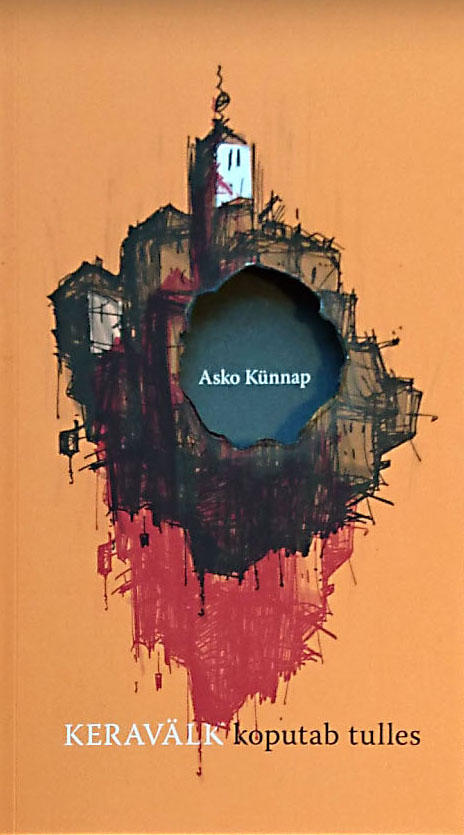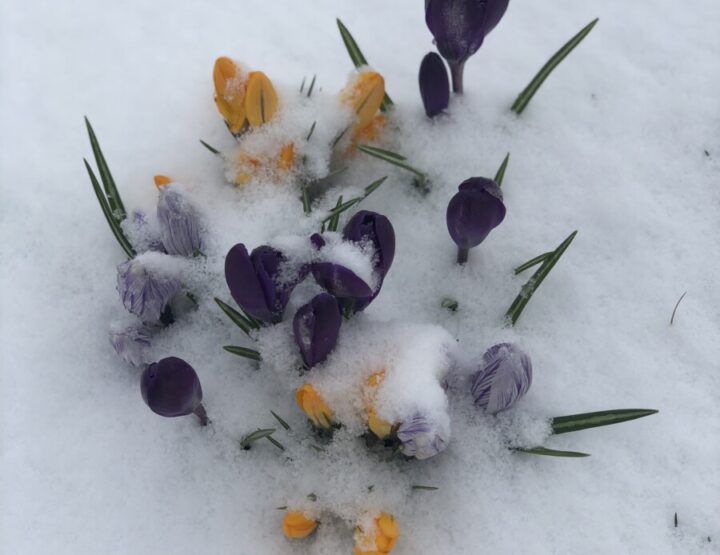Näo Kirik 2019, 112 pp
ISBN 9789949723096
Asko Künnap is an orchestra of a man: he is a designer, artist, creative advertiser, translator, and probably much more, at least to the same degree as he is a poet. In the world of Estonian literature, he is also known as one in a trio of poets (the others being Jürgen Rooste and Karl Martin Sinijärv) that has published four playful and experimental joint collections to date. Künnap has released seven individual poetry collections prior to The Lightning Ball Knocks as It Enters.
The literary critic Andri Ksenofontov has fittingly called Künnap’s writing “designed poetry”, referring to the author’s painstaking efforts taken to design and compose his poems in addition to all other elements of the books. This also applies to his latest collection: a kind of aspiration for exclusivity reveals itself already when skimming the description on an online bookselling site. The front cover of every copy features a unique hole burned by hand. This fact alone (along with the unusually high price tag for an Estonian poetry collection) points to the author’s disdain for cheap, homogenous, mass-produced culture. Künnap’s own illustrations and arrangement of the poems make the work even more extraordinary.
It’s difficult to draw any generalizations about the poems themselves, which form a diverse panoply. At times, it’s even a challenge to seize upon a specific intention in any one poem, as complete messages have been sprinkled across the whole collection. For example, there resonates scorn directed at the meaningless phenomena of our modern day (Facebook, hipsters, and 3D printers are just a few that receive jabs), but it’s hard to pick out any one straightforwardly “social-critical” poem. Künnap notes his skepticism of modern follies in passing; still, he maintains a cool composure and deems them unworthy of excessive space in his writing.
Künnap’s style is brazen, incentive, and occasionally a touch archaic. The swift thrust, beckoning tone, and endeavor to achieve a hearty, rustic relish similar to that used by the Estonian poet Hando Runnel encourage one to read his poems more as lyrics. That being said, Künnap’s deeply romantic side is not left overshadowed. The luxuriously lyrical and pleasing poems may be the collection’s strongest suit for some readers, though they do require their grating and more playful companions for comparison – Künnap’s cynical rebellious side wouldn’t put up with lavish sentimentality. I’ll conclude with a verse that sums up the author’s perspective quite nicely:
I’m tired
of your trivial TV shows,
of this dizzying debt of karma,
I’m tired of myself ,
of inward gazes and views,
of the PM’s incessant drivel.
Maarja Helena Meriste is a poetry editor in a literary magazine Värske Rõhk, literary critic and translator. She is currently pursuing a master’s in literature in Tallinn University, focusing on computational stylistics.





